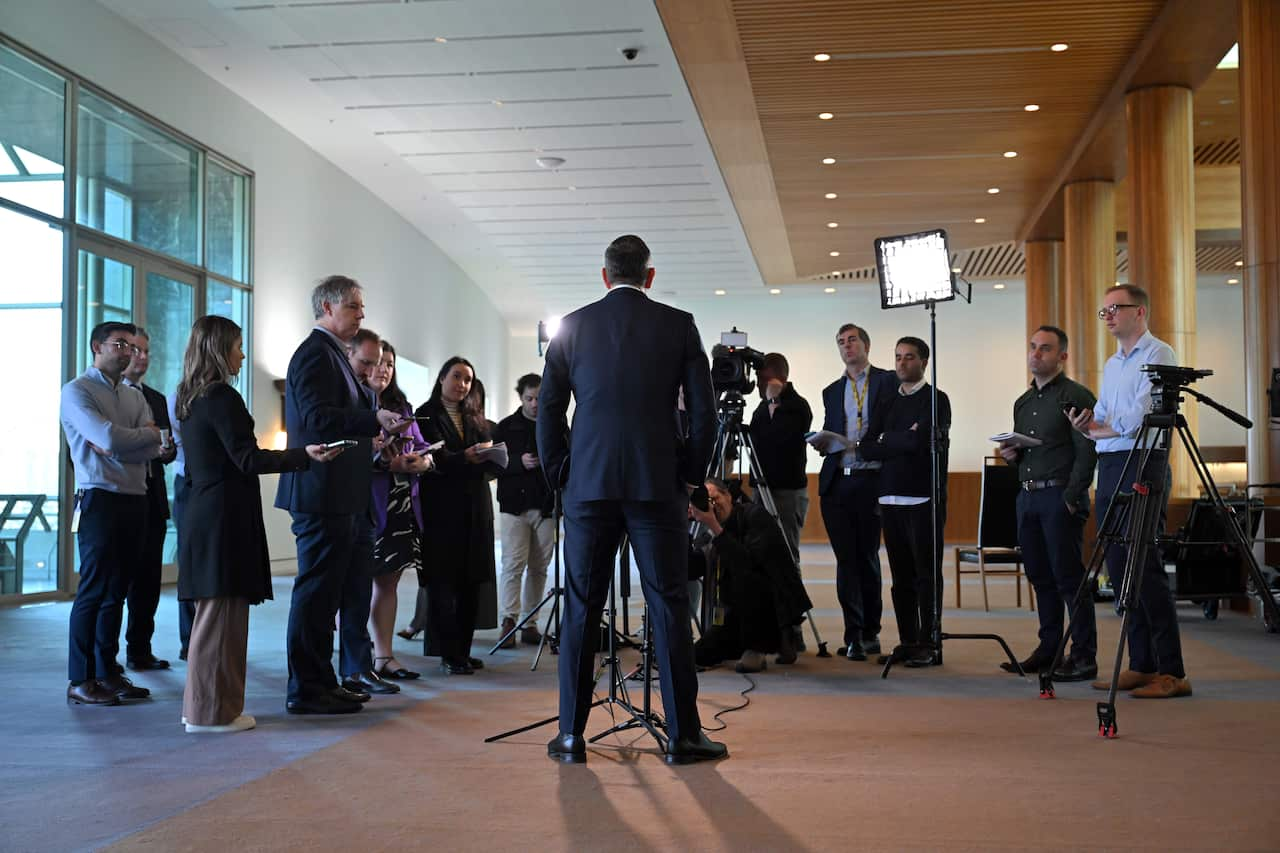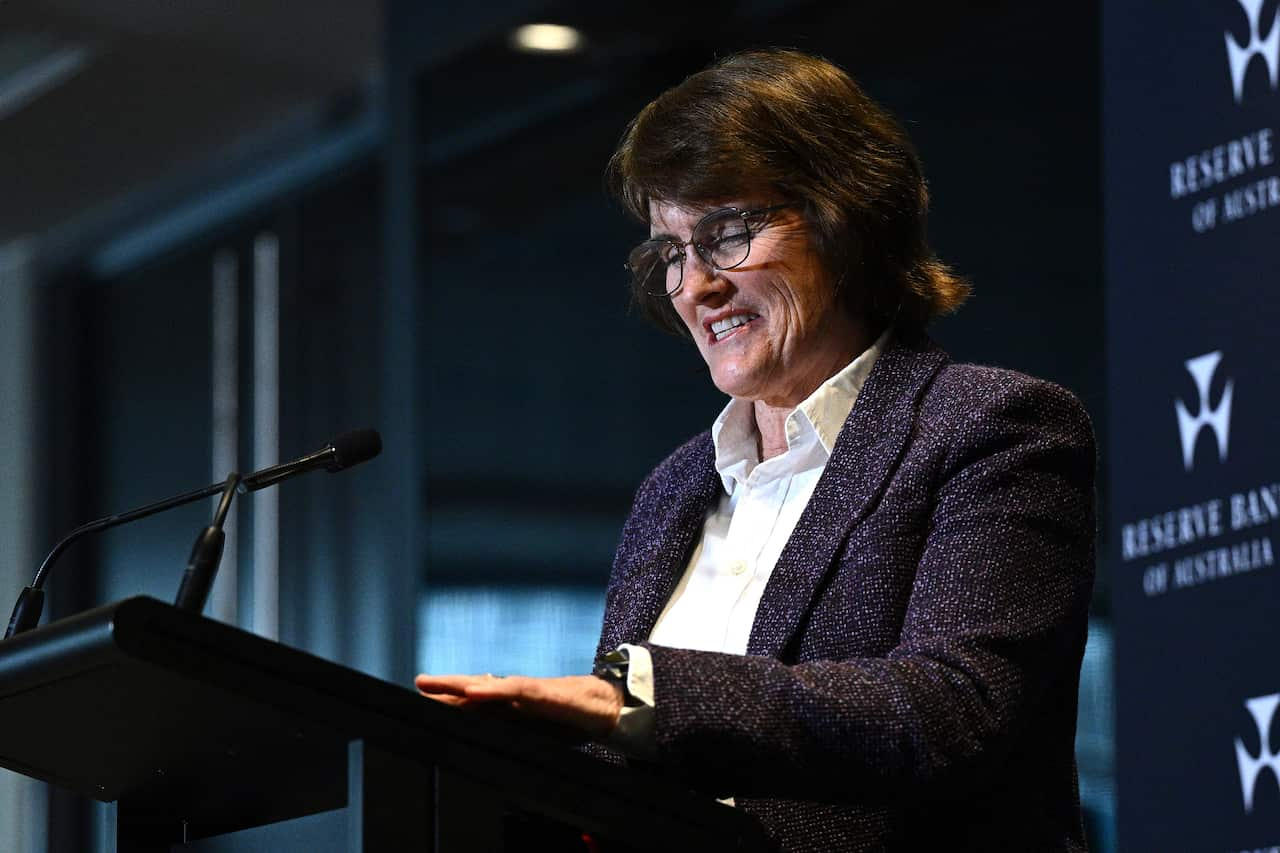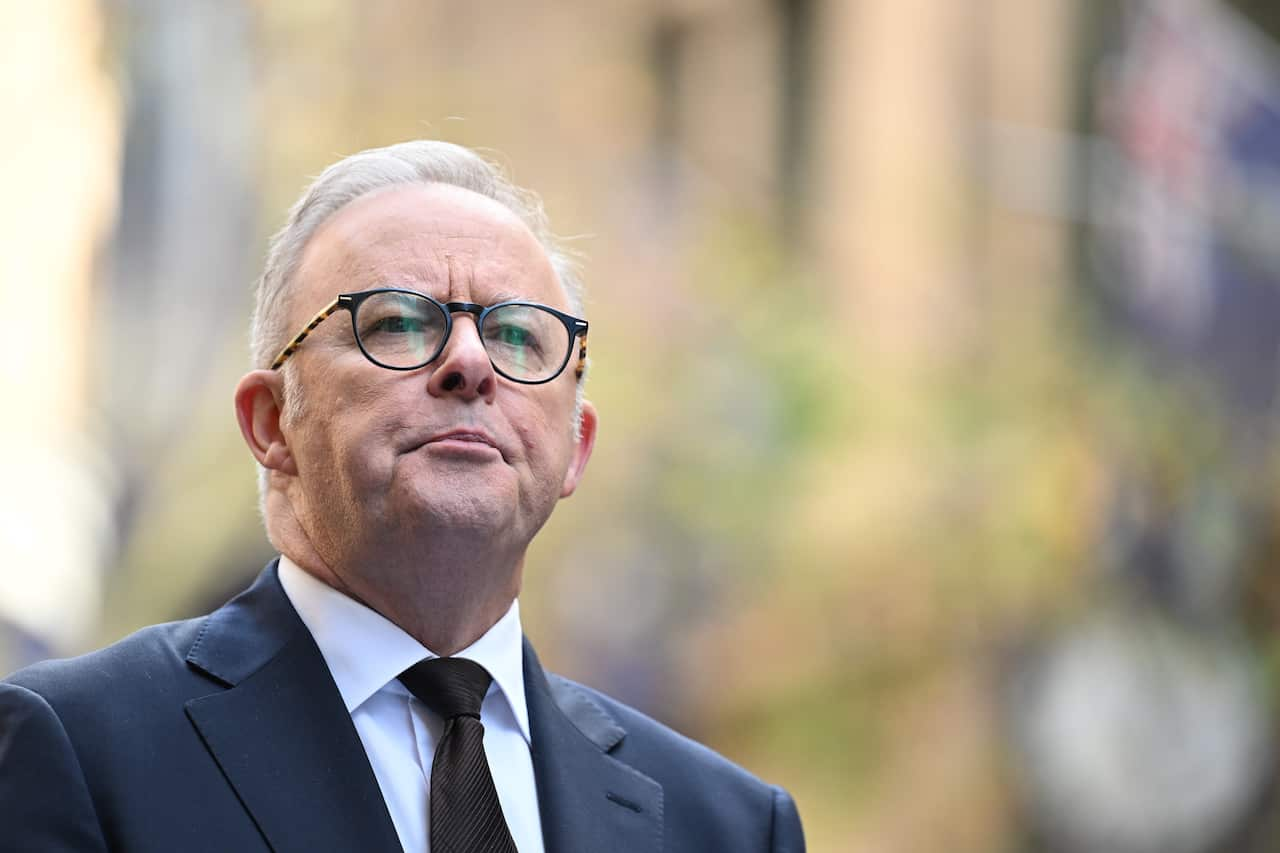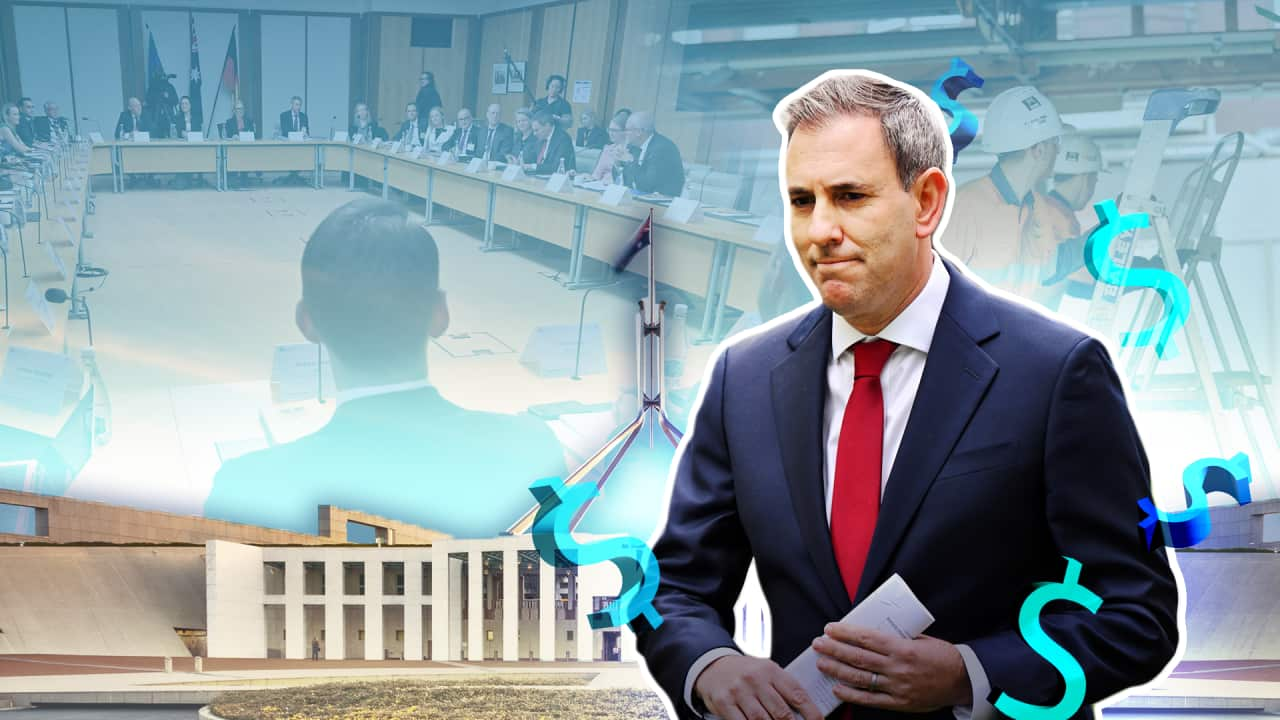Around 30 leaders from business, unions and civil society will convene in Canberra on Tuesday for three days of discussion and debate about the country's economic future.
The summit, first announced in June, is a key part of the government's strategy to build national consensus around economic reform.
Treasurer Jim Chalmers has said that the ideas discussed at the roundtable will inform "the next three budgets and beyond". A number of topical and controversial ideas for reform are on the table, including major tax reform, deregulating artificial intelligence and a four-day work week.
So what can we expect from the roundtable, and what might it achieve?

What is the point of the roundtable?
When Prime Minister Anthony Albanese announced the summit in June, he said the aim was to "build the broadest possible base of support for further economic reform".
It addresses a need for long-term economic reform, in particular to improve Australia's sluggish productivity — a key determinant of our standard of living.
The roundtable follows news last week that the Reserve Bank of Australia (RBA) had downgraded productivity growth from 1 per cent to 0.7 per cent. In its economic outlook, the RBA said that slow productivity will take a toll on business revenues, household incomes and demand. The Australian Bureau of Statistics reports that productivity has been in decline since 2016.
After the RBA's announcement, Chalmers told reporters that "productivity is the most serious economic challenge that we have in our economy".
Who will be there?
The roundtable is organised around three main themes:
- Resilience (Tuesday)
- Productivity (Wednesday)
- Budget sustainability and tax reform (Thursday)
On the invitation list is a diverse assembly of around 30 leaders from the business community, the union movement and civil society who will attend alongside economists, policy experts and heads of key government agencies. Some of the sectors represented at the roundtable include banking, universities, mining and superannuation.

Presentations will be delivered by RBA governor Michele Bullock, Productivity Commission chair Danielle Wood and Grattan Institute CEO Dr Aruna Sathanapally among others. The government says a further 900 submissions from experts, industry leaders and individuals will also inform the outcome of the roundtable.
What are some of the big ideas up for discussion?
Housing is a high priority on the government's agenda, with leaked documents seen by the ABC suggesting the government may be considering deregulation to boost housing supply. These changes could include pausing the National Construction Code and reforming the Environment Protection and Biodiversity (EPBC) Act in order to speed up development approvals.
Artificial Intelligence is also proving to be a hot topic, with the Productivity Commission leading calls to reduce regulation of AI to boost productivity. This has been met with resistance from unions and creative bodies who are calling for greater protection of workers and intellectual property against the risks of AI.
Multiple proposals for tax reform can be expected. Independent MP Kate Chaney is calling for an increase to the Goods and Services Tax (GST) to 15 per cent, combined with an annual offset payment of $3,300 to individuals. Meanwhile, the Productivity Commission is arguing for a lowered corporate income tax rate for small and medium-sized businesses, which it says will boost investment.
Other topics that have been discussed in the lead-up to the roundtable include negative gearing reforms, a union-led push for a four-day work week, and reintroducing a carbon price.
What are the concerns with it?
The leaked Treasury advice published by the ABC last week raised concerns that the outcomes of the economic roundtable may have been determined before the roundtable began. This led Opposition treasury spokesperson Ted O'Brien, who is attending the roundtable, to warn the summit had been "engineered to rubberstamp" Labor policy and could become a "privileged talkfest".
In response, Albanese told reporters that they were "awaiting the forum, and ideas will then come through normal government processes. That's how good policy happens".

A spokesperson for Chalmers said the government is not "pre-empting ideas" but "preparing for them as you would expect".
Nonetheless, the government has already confirmed it won't be implementing all the ideas brought forward to the roundtable.
What we won't see
Chalmers has already poured cold water on the ACTU's bid for a four-day work week. Last week, he told The Conversation "it's not something we've been kind of working up or considering".
Instead, Finance Minister Katy Gallagher has signalled a focus on working from home.
"Certainly we support working with unions and others about how to make sure workers have the right flexibility to juggle all the different and competing priorities in their lives and work from home is part of that," she told Channel 7's Sunrise on Monday morning.
Albanese also downplayed the prospect of major tax reform when speaking to reporters last Thursday.
"The only tax policy we're implementing is the one we took to the election."
Outside Parliament House on Monday morning, Chalmers said that while the roundtable presents a number of challenges, he is optimistic about Australia's appetite for economic reform.
"I am realistic but optimistic that we can make progress together. I don't believe we will solve every challenge in our economy in three days. This is about three days to inform the next three budgets and beyond and I am really looking forward to that."
For the latest from SBS News, download our app and subscribe to our newsletter.

